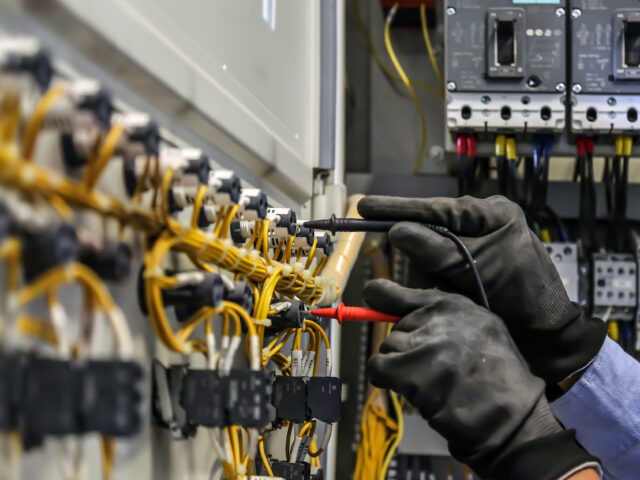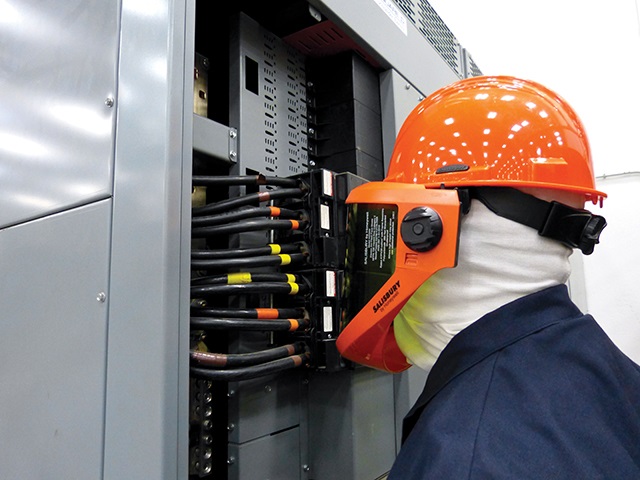Essential Tools Every Electrician Needs

In the field of electrical work, having the right tools is paramount. Whether you are a seasoned electrician or a budding apprentice, the efficiency, safety, and quality of your work greatly depend on the tools at your disposal. This guide will delve into the essential tools every electrician needs to perform their job effectively. From basic hand tools to specialized equipment, we will cover everything that should be in your toolkit to ensure you are prepared for any electrical job.
Basic Hand Tools
1. Screwdrivers and Nut Drivers
Screwdrivers and nut drivers are indispensable for any electrician. These tools are used for loosening and tightening screws and nuts, essential for assembling electrical components and enclosures. It’s crucial to have a variety of sizes and types, including flat-head, Phillips, and Torx screwdrivers.
2. Pliers
Pliers come in various forms, each serving a different purpose:
- Needle-Nose Pliers: Ideal for precision tasks, such as bending wires and accessing tight spaces.
- Diagonal Pliers: Also known as side cutters, these are used for cutting wires cleanly.
- Linesman Pliers: These are multipurpose pliers used for twisting wires together, cutting, and gripping.
3. Wire Strippers
Wire strippers are essential for removing the insulation from electrical wires without damaging the wire itself. They typically come with multiple notches to accommodate different wire sizes, ensuring you can strip wires quickly and efficiently.
4. Tape Measure
Accurate measurements are crucial in electrical work. A reliable tape measure helps ensure that your installations are precise, and components are placed correctly. A tape measure with both metric and imperial units can be particularly useful.
5. Level
A level is necessary to ensure that your installations, such as switch boxes and panels, are perfectly horizontal or vertical. This not only ensures a professional appearance but also can affect the functionality of certain installations.
6. Hammer
A good hammer is needed for securing electrical boxes and conduits. A claw hammer with a straight claw can also be used for pulling out nails and prying objects.
Safety Tools
1. Insulated Tools
Safety is paramount in electrical work. Insulated tools, such as screwdrivers and pliers, are designed to protect you from electric shocks. These tools are rated to withstand high voltages and provide an extra layer of protection.
2. Voltage Tester
A voltage tester is crucial for verifying that circuits are de-energized before working on them. Non-contact voltage testers allow you to check for the presence of voltage without directly touching the wire, adding an extra layer of safety.
3. Multimeter
A multimeter is an essential diagnostic tool that measures voltage, current, and resistance. It can help you troubleshoot electrical problems, verify connections, and ensure circuits are functioning correctly.
4. Circuit Finder
Circuit finders are used to trace and identify individual circuits within a building. This tool is especially useful when you need to shut off power to a specific circuit before performing work.
5. Safety Glasses and Gloves
Protective eyewear and gloves are essential to prevent injuries. Safety glasses protect your eyes from flying debris, while gloves offer protection against electrical shocks and cuts.
Power Tools
1. Cordless Drill
A cordless drill is invaluable for drilling holes and driving screws. It’s especially useful for installing electrical boxes, fixtures, and conduit straps. Opt for a drill with a good battery life and variable speed settings.
2. Reciprocating Saw
A reciprocating saw, also known as a sawzall, is useful for cutting through various materials, including wood, metal, and PVC. This tool is particularly helpful for demolition work and creating openings for electrical installations.
3. Conduit Bender
A conduit bender is essential for shaping conduits to fit around obstacles and ensure neat, organized installations. Manual benders are available for smaller jobs, while hydraulic benders can handle larger conduits.
4. Power Fish Tape
Fish tape is used to pull wires through conduits, walls, and other confined spaces. A power fish tape can make this task much easier and faster, especially in longer runs.
5. Rotary Tool
A rotary tool with various attachments can be used for cutting, grinding, polishing, and drilling. It’s a versatile tool that can help with numerous tasks, from trimming excess material to cleaning up rough edges.
Specialized Tools
1. Circuit Analyzer
A circuit analyzer is used to test the functionality of electrical circuits. It can identify wiring problems, such as open grounds or reversed polarity, ensuring that installations are safe and up to code.
2. Cable Puller
Cable pullers are essential for installing long runs of wire and cable. These tools help pull cables through conduits and other difficult paths, reducing the physical strain on electricians.
3. Insulation Resistance Tester
An insulation resistance tester measures the resistance of electrical insulation. This tool is crucial for ensuring that wiring insulation is intact and capable of withstanding high voltages, preventing potential electrical faults.
4. GFCI Outlet Tester
Ground Fault Circuit Interrupter (GFCI) outlet testers are used to ensure that GFCI outlets are working correctly. They help identify issues with the outlet’s ability to detect ground faults and interrupt the circuit.
5. Thermal Imager
A thermal imager detects heat signatures, helping identify overheating components and potential electrical faults. This tool is particularly useful for preventive maintenance and troubleshooting.

Organizational Tools
1. Tool Belt
A good tool belt keeps your essential tools within easy reach, allowing you to work more efficiently. Look for one with multiple pockets and compartments to organize your tools effectively.
2. Tool Bag or Box
A sturdy tool bag or box is necessary for transporting your tools to and from job sites. It should be spacious enough to hold all your essential tools and durable enough to withstand regular use.
3. Label Maker
A label maker helps keep your work organized by allowing you to label wires, cables, and components clearly. This can be particularly useful for complex installations and troubleshooting.
4. Portable Work Light
Good lighting is essential for working in dimly lit areas. A portable work light provides ample illumination, ensuring you can see clearly and work safely.
5. Ladder
An electrician’s job often involves working at heights. A sturdy, reliable ladder is essential for reaching high places safely. Opt for a ladder that is lightweight yet durable, and make sure it meets safety standards.
Conclusion
Equipping yourself with the right tools is the foundation of a successful career in electrical work. From basic hand tools to advanced diagnostic equipment, each tool has its place in ensuring you can perform your tasks efficiently, safely, and to a high standard. By investing in quality tools and maintaining them properly, you not only enhance your productivity but also uphold the safety and reliability of your electrical installations. Feel free to visit abacusplumbing.com/electrician/ to get more useful tips and ideas about the essential tools every electrician needs.



